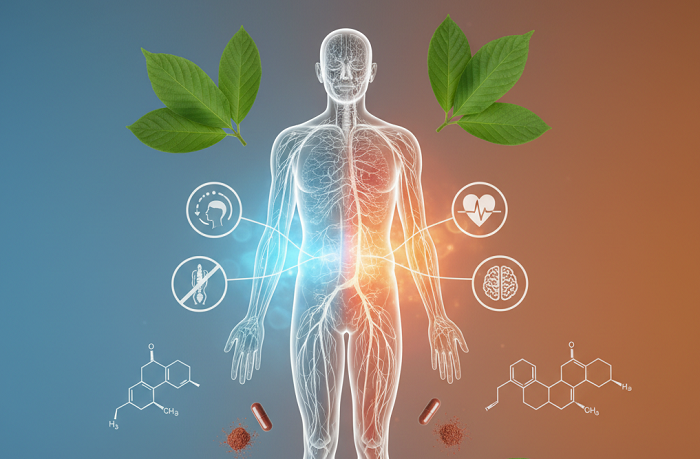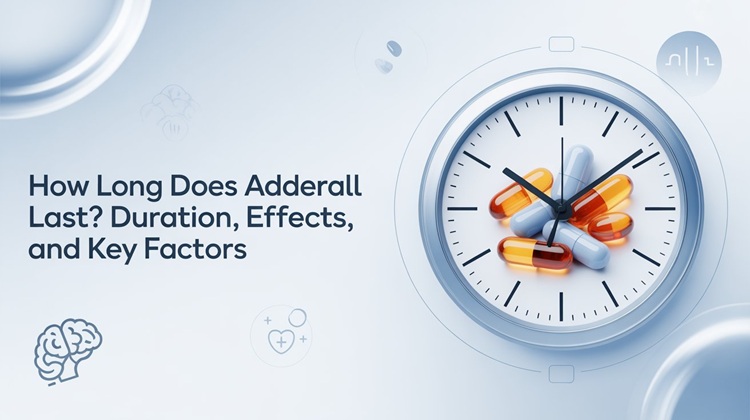What Does Kratom Do To the Body?
- Kratom acts on the opioid receptors in the brain, which leads to stimulant-like action within low doses and opioid like sedation within high doses.
- Patients who are entailed, are likely to be relieved of pain, anxiety, or fatigue, although at least temporarily.
- Nevertheless, the levels of 7-OH kratom are unpredictable to the human body, even causing strains on organs and it is also likely to cause dependency.
- The chronic use affects different body systems such as the nervous, digestive, and cardiovascular system.
What Does Kratom Do to the Brain?
- Neurochemical effect: It modulates the dopamine, serotonin and norepinephrine that influence the mood, motivation, and thinking of the human body.
- Kratom can also give the effect of euphoria, tranquility or even energy, depending on the dose.
- Extended use of kratom may impair the natural reward system of the brain causing tolerance and addiction.
- The opioid receptors are bound by high concentrations of 7-OH; the research indicates as high as 13 times stronger binding compared to morphine (Takayama et al., 2002, NIH study).
- The risks are numerous, and they include memory impairment, lack of concentration, mood changes, and possible seizures.
100% Confidential Support is Available 24/7
No matter what you’re going through, you’re not alone. Our dedicated team is here to provide a safe, judgment-free space where you can talk openly and honestly. Whether you need emotional support, resources, or just someone to listen.
We’re here for you—completely confidential and always respectful of your privacy. Call us today!
What Does Kratom Do to the Mind?
- Short-term: The consumers of these products might be relaxed, sociable, or vitalized.
- High doses: When a high dose is taken, it may cause confusion, hallucination or delude.
- Long-term: The prolonged time of taking the dose may result in Chronic use, which is associated with anxiety, depression, and irritability.
- The effects of mental health are similar to those of opioid abuse, and they include emotional instability and dependence.
Contact Palm Coast Treatment Solutions
Battling with Drug and Alcohol Addition? Remember, you are not alone and we are here to help you!
What Does Kratom Do To the Stomach?
Many kratom users experience gastrointestinal distress. Effects vary by dose and duration.Short-term effects:
- Lead to nausea and vomiting
- Also have constipation
- It also led to abdominal pain
Long-term effects:
- This gives chronic constipation
- It also affects the Liver
- It also affects Appetite suppression, and there is also weight loss in the patient.
| Effect Type | Short-Term | Long-Term |
|---|---|---|
| Digestive Issues | Nausea, vomiting, stomach cramps | Constipation, liver strain |
| Nutritional Impact | Temporary appetite suppression | Weight loss, malnutrition |
100% Confidential Support is Available 24/7
No matter what you’re going through, you’re not alone. Our dedicated team is here to provide a safe, judgment-free space where you can talk openly and honestly. Whether you need emotional support, resources, or just someone to listen.
We’re here for you—completely confidential and always respectful of your privacy. Call us today!
Overcome Addiction with Palm Coast Treatment Solutions.
Book an appointment.
What Does Kratom Do To Your Health?
- Cardiovascular: It may also lead to tachycardia and hypertension, and it very rarely leads to arrhythmia, which is also induced by the kratom.
- Respiratory: It will also slow the breathing rate with the large dosages of kratom, just like opioids.
- Neurological: Headaches, dizziness, tremors, and heavy users report having seizures.
- Immune system: The kratom has a risk of being contaminated with heavy metals or Salmonella as well, which impairs the overall state of health (FDA, 2025).
- Interactions: When used together, kratom increases the risk of health issues when used with alcohol, opioids, or antidepressants.
What Does Kratom Do to the Body Long-Term?
Persistent kratom consumption causes permanent damage:
- It destroys the liver and kidneys.
- It also resulted in chronic fatigue and weakness.
- It is based on this that it has effects on the hormonal disruptions.
- Prolonged nervousness and depression.
- Greater dependency risk is associated with the 7-OH-kratom effect.
Overcome Addiction with Palm Coast Treatment Solutions.
Book an appointment.
What Are the Effects of Kratom on the Body?
| Body System | Short-Term Effects | Long-Term Effects |
|---|---|---|
| Nervous System | Alertness, euphoria, relaxation | Addiction, seizures, mood disorders |
| Digestive System | Nausea, constipation | Liver damage, weight loss |
| Cardiovascular | High blood pressure, rapid heartbeat | Arrhythmia, chronic hypertension |
| Psychological | Calmness, sociability | Anxiety, depression, hallucinations |

What Organs does Kratom Affect?
- Liver: Enzyme elevation, inflammation and toxicosis.
- Kidneys: The threat of renal stress and damage.
- Heart: This increases the heart rate and blood pressure and may cause arrhythmias.
- Brain: Overstimulation of opioid receptors, addiction, seizures.
- Lungs: Kratom influences the Respiratory depression with high doses.
Overcome Addiction with Palm Coast Treatment Solutions.
Book an appointment.
Kratom and Pregnancy Risks
- Kratom effects may lead to Neonatal Abstinence Syndrome (NAS), which is manifested in the symptoms of withdrawal in the newborn during pregnancy.
- Based on this, babies born could also experience irritability, feeding problems and seizures.
- In 2025, the FDA cautioned pregnant or breastfeeding persons against the use of kratom because of the unpredictable and health-hazardous effects.
Kratom and Public Safety Concerns
- More than 3,400 kratom-related calls were presented to the Poison Control Centers of the U.S. in 2014-2019 (CDC, 2024 report).
- There were reports of seizures, liver damage and even deaths.
- Unregulated cannabis makes it hard to be aware of potency, with more serious risks of overdose.
- Kratom may be marketed as a ‘safe or ‘herbal product,’ which is deceptive to the consumers.
Kratom Legal status in the U.S?
- Federal level: The FDA has not legalized kratom, but the DEA has put kratom among “drugs of concern.”
- State bans: Some American states, like Indiana and Wisconsin, have also prohibited the sale of Kratom.
- International Aspects: Several Southeast Asian nations, such as Thailand and Malaysia, limit kratom; however, laws are becoming more relaxed to sell this product out of their market.
- Safety advisories: The FDA persistently gives warnings to people against kratom and 7-OH kratom extracts because of the danger of overdose, contamination, and abuse.
Contact Palm Coast Treatment Solutions
Battling with Drug and Alcohol Addition? Remember, you are not alone and we are here to help you!

Kratom Addiction Treatment
Quitting kratom addiction will be a professional task:
- Medical Detox: Prescription withdrawal under 24/7 supervision.
- Therapy: Cognitive Behaviour Therapy (CBT), group counselling.
- Medication-Assisted Treatment (MAT): It is applied to Non-addictive medications and deals with cravings.
- Inpatient/Outpatient Programs: It is applied in the case of flexible care.
- Relapse Prevention: It also promotes aftercare planning and groups, too.
👉 Claim your health back, Palm Coast Treatment Solutions (PCTS). Call us at (386) 284-4151 and start recovery today.
Key Takeaways
- So what happens to the body when consuming kratom? It affects almost all the major organ systems.
- 7-OH kratom effects are more potent than natural kratom and dangerous.
- Long-term use of this product may result in risks and these risks may be damage to the body organs, loss of mental health, and addiction.
- The treatment programs for professional kratom addiction are the safe way to go.
FAQs
What are the advantages of kratom?
Most of the users of Kratom have testified to numerous advantages, such as pain relief, boosted energy and enhanced mood. Nevertheless, they are anecdotal and not proven and are superseded by dangerous factors, like addiction, organ damage, and unpredictable side effects. Kratom does not have any approved medical use in the FDA.
What are the organs that are impacted with kratom?
Kratom affects the liver, kidney, heart, brain and lungs. Chronic use amplifies the risks of hepatotoxicity, nephrotoxicity, arrhythmia, addiction and respiratory problems.
What is a kratom high like?
At low doses, kratom may replicate caffeine energy, concentration and alertness. At increased dosages, the effects become opioid like and include sedation, relaxation and euphoria. This duality makes it more abusive.
What are the contraindications of kratom?
Kratom must not be combined with alcohol, opioids, sedative or antidepressants because their interactions may cause respiratory depression, overdose, or severe organ stress.
Which one is stronger kratom or morphine?
Though kratom is not as strong, its metabolite 7-hydroxymitragynine (7-OH) is up 13-fold more powerful than morphine (NIH study, Takayama et al., 2002) significantly increasing the overdose and dependency risk.
Does kratom test positive in drug test?
The majority of the standard drug tests fail to identify kratom. Nevertheless, kratom and 7-OH alkaloids are detectable by specialised toxicology screens, both in medical or legal settings.
What is the duration of a kratom high?
Usually, 2-6 hours, in relation to dose, user metabolism and the form of the product. Strong extracts can be more durable, and more dangerous in terms of the severe effects.
What is the strongest kratom?
Kratom extracts that contain the most common and include the most dangerous alkaloid concentrations are 7OH. These are addictive, overdosing, and withdrawal products that are associated with these products.
Are there rehabs where kratom users can be taken?
Yes. A number of centers, such as Palm Coast Treatment Solutions, offer specialised kratom addiction treatment programs which involve detox treatment, therapy and relapse prevention.
References
- U.S. Food and Drug Administration (FDA, 2025)
- Centers for Disease Control and Prevention (CDC, 2024)
- National Institute on Drug Abuse (NIDA, 2024)
- National Institutes of Health (NIH, 2024)
- [Takayama et al., 2002, Study on 7-OH Potency]






















